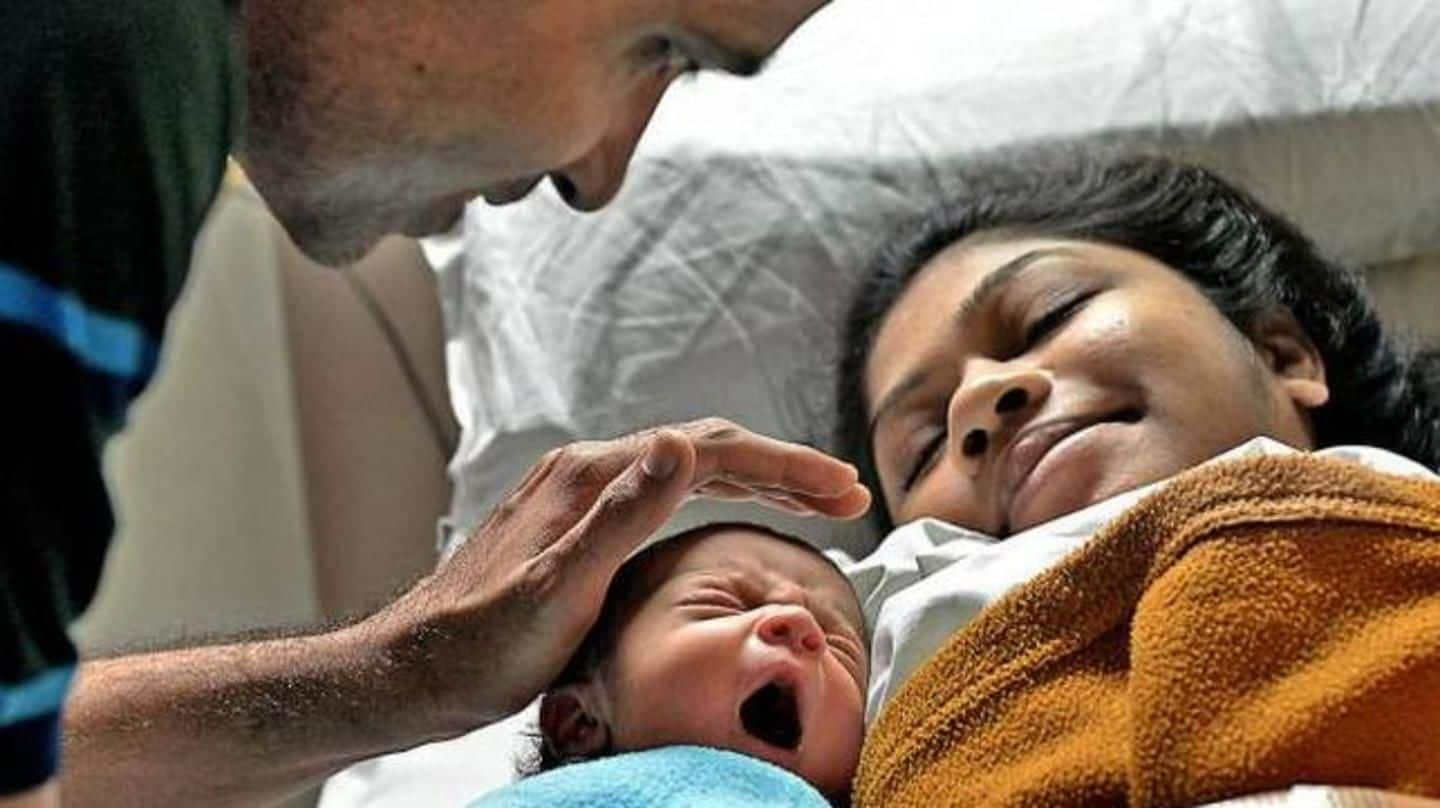India's first test-tube baby is now a mother herself
What's the story
On August 6, 1986, Baby Harsha created history: she was India's first test-tube baby, and had just been born, all healthy and prim.
Thirty years later, another historic moment came when she gave birth to her own baby, conceived naturally.
What made it more heartwarming is that Dr Indira Hinduja, who helped 'create' Baby Harsha, was the one who delivered her baby.
Beginning
Before Harsha, Hinduja had attempted IVF with 17 couples
Before Harsha was born, Hinduja had attempted IVF with 17 couples, but without success.
Then arrived Mani Chawda, a part-time teacher, and her husband Shyam, a BMC worker. They had been trying to conceive for four years.
They didn't understand what exactly IVF (in vitro fertilization) was, but they were prepared. "I just wanted a baby," said Mani.
Birth
In August 1986, history was made
The clinical trial was free; the couple borrowed money for hormone injections.
And then they made history: the Chawdas got success in the first attempt. In August, Harsha was born at Mumbai's King Edward Memorial Hospital.
"We chose to do a C-section," Hinduja said. She also roped in late Dr Kusum Zaveri, then a doctor at JJ, to assist "in case my hands started to shake."
Troubles
The process wasn't easy for the couple
It wasn't easy for the Chawdas. Mani recalled she missed one injection and participated in a running race at school, which earned Hinduja's wrath.
Relatives found out about Harsha's origins only when media landed on their doorstep at her baby shower.
The comments came rushing. Some said the baby would have four hands; others wondered if it was even Shyam's, Mani said.
But the couple had faith.
Quote
Harkisan Mehta, ex-editor of 'Chitralekh,' helped too
"We also found support in Harkisan Mehta (then editor of the Gujarati weekly Chitralekha), who travelled to the US and returned with photographs of IVF babies. He showed them to us and told us how a test-tube baby was normal abroad," Mani said.
Harsha
Harsha was upset when she found out what 'test-tubes' were
What was tougher was telling Harsha she was an IVF baby.
"I figured it out," said Harsha, a former corporate secretary and now stay-at-home-mom. The media would come to take her photos on her birthdays, and referred to her as a test-tube baby.
She wasn't bothered till she actually saw test tubes at school.
"I associated test tubes with experiments and wondered if I was one too."
Growth
'Grateful that I was part of the incredible experience'
Again, Hinduja came to help. The Chawdas, who were unsure how to explain it to her, sought help from the doctor.
And Hinduja and Harsha kept in touch. When it was her time to have babies, she turned to her "godmother."
"To watch Harsha grow up, marry... The whole experience has been incredible and I'm grateful to God that I was part of it," Hinduja said.
Hinduja
Hinduja recalls her own journey in medicine
Hinduja recalled her own journey, saying she wanted to be a doctor since she was nine, when she was admitted to a hospital after an accident and was mesmerized by the "adults in lab-coats."
By 32, she was an MD, and was pursuing a PhD in IVF research. The world's first IVF baby was born in 1978, and experiments were going on in India.
Changes
Many things have changed, but one hasn't
Hinduja, who has till now helped 15,000 couples with IVF and is a pioneer in GIFT (Gamete Intrafallopian Transfer) treatment in India, said scenes have changed drastically.
Then, couples hardly had any questions. "Today, they're more aware."
Success rate in IVF has also increased from 13% to 55%, she said.
What has remained same is the expression on couples' faces when they find out it's been successful.
